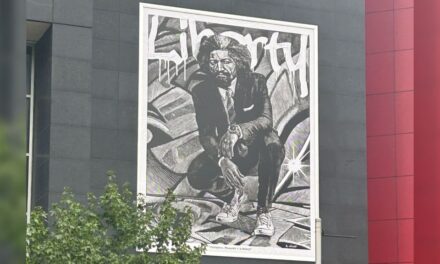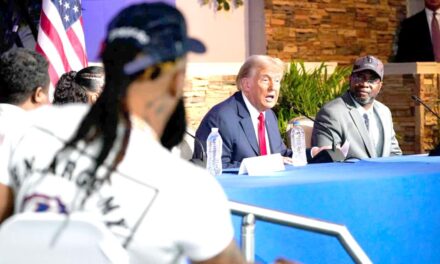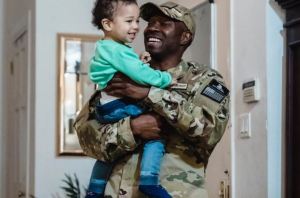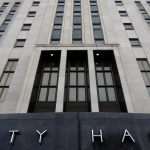Special to the AFRO
By Ariyana Griffin
WBAL-TV 11 and Maryland Public Television hosted two Democratic candidate primary election debates exclusive to Morgan State University students, facility and staff on April 17. The debate took place at the Carl J. Murphy Fine Arts Center on the historically Black university’s campus.
The debate included current Mayor Brandon M. Scott, former mayor Sheila Dixon, Thiru Vignarajah and Bob Wallace.
Juvenile crime
Candidates were asked to speak on the rise of juvenile crime in the city. Moderators brought up the Brooklyn Homes mass shooting last July, which resulted in the arrest of several juveniles.
Thiru Vignarajah shared his background as a federal and city prosecutor.
“Today carjackers, robbers, auto thefts committed by children, committed by youthful offenders are being treated like they’re stealing bubble gum from the cafeteria,” said Vignarajah.
Vignarajah stated that consequences for the crimes need to be put in place so that they do not continue occurring.
“We’re gonna do very specific things, including a presumption of detention for violent crimes for 30 to 60 days, so we can evaluate what these kids need and get them back on track.”
Sheila Dixon explained that the issue stems from school truancy and needs a holistic approach when working with families and community members to solve the issue.
“If we don’t get to the root of what’s happening in our community, we’re gonna be losing more residents to Baltimore County and other surrounding counties,” she said.
Mayor Brandon Scott emphasized the work he has been doing with the Baltimore City Public schools and the Baltimore Police Department.
“I’m the mayor that has invested more in the public education of our Baltimore City Public school students than anyone in history. No one can argue with that,” said Scott.
“My police officers will continue to make the arrest of anybody that is committing a crime. I don’t care how old you are. What we have to do is continue to work with our parts of the state to modernize their assistance.”
Bob Wallace had a similar approach, “It doesn’t matter how old the person is. If they’re old enough to commit the crime, they’re old enough at the time,” he said. He did, however, explain that young people need a foundation to make better decisions, and that parents need to be held accountable for negative behaviors.
“Their parents also need to be held accountable because we cannot have a city that allows this lawlessness to continue and to hurt our citizens,” he said.
Affordable housing
When it comes to affordable housing, Sheila Dixon explained that she wants to utilize her Land Bank concept, previously created but not used, to help with affordable housing. She also shared that she wants to create a new neighborhood redevelopment authority to leverage lenders and other institutions to help.
“We can streamline the process in order to create neighborhoods and community– not just for affordable housing, but also the amenities that can go along with that,” Dixon said.
Mayor Scott rebutted by stating, “We don’t need a land bank in Baltimore City. We have a housing department that has all those authorities.”
“I used a hundred million dollars to go into affordable housing projects,” he said. “We have a housing accelerated fund. We just gave out $30 million for folks who are creating these units.”
Bob Wallace wants to use the vacant homes to Baltimore’s advantage.
“Vacant land in Baltimore City is one of our biggest assets that we have,” he said. He explained that this can be a tool to attract businesses to the neighborhoods, and create a partnership where developers and investors have to build a certain amount of affordable housing.
Thiru Vignarajah highlighted that although the amount of vacant homes are lowering, the amount of vacant lots are rising. He hopes to bring back the dollar homes program with a system that works for the community as well as increase property taxes on abandoned properties, a system modeled after Washington D.C.
“If you’re an out-of-state developer, either do something with the property or sell it to someone who will,” he said.
Food deserts
According to the city of Baltimore Department of Planning, “one in four Baltimoreans lives in a food desert” which is an area “where residents lack access and sufficient economic resources to purchase healthy food.”
Thiru Vignarajah stated there are two things that will be accomplished on day one: making grocery stores profitable and creating low flat rates for food delivery services to residents living in food deserts.
“One of the ways that we can increase the profitability of those grocery stores in food deserts is allow them, as many other states have done in food deserts, specifically to sell wine and beer, that ability to sell those products will dramatically increase their profitability,” said Vignarajah.
Sheila Dixon spoke on her plans to address issues.
“I’m gonna create a housing authority that will create a development authority that’s going to not only look at the vacant properties, but how we can attract amenities in those communities. But the first thing that we have to do is we have to deal with public safety in those neighborhoods.”
Mayor Brandon Scott shared that building more grocery stores is in progress and “Right across the street here at Millwood Shopping Center, we last year, brand new Lidl, there’s another one coming on Bel Road.” said Scott. “We’ll continue to do incentives. We’ll continue to do everything that we can from the city government to have the financial things that are needed there.”
Bob Wallace shared he has met with leaders in the west coast to convince food market businesses to relocate or expand to Baltimore. “We have to minimize the risk of business investors,” said Wallace.
The Baltimore Democratic City Council President Debate
In addition to mayoral candidates, those in attendance heard from Zeke Cohen, current Baltimore City Council President Nick Mosby, and former councilwoman Shannon Sneed, all seeking to be city council president term in the next term.
Redlining and Transportation
Zeke Cohen expressed that the Red Lining plan is an important project and was disappointed when the previous governor removed it, “setting Baltimore back at least a decade.” He said that transportation is essential for Baltimore community members and to have a walkable city.
Shannon Sneed shared that she comes from a one car household and heavily relies on public transportation, although it is not reliable.
“When you talk about public transportation, I’m the one that’s actually the one car household that has to get on public transportation that has to actually like most of my community, that has to rely on. So it absolutely should be better,” Sneed said.
Nick Mosby mentioned that transportation is a majority priority.
“The empirical data shows us that when we talk about the number one indicator of someone escaping poverty and being able to have access to upward mobility is through transit,” Mosby said, adding that the state of Baltimore’s mass transit system “is completely unacceptable.”
“It’s literally our Achilles heel to economic development,” he said.
School Board
Shannon Sneed shared that parent involvement is important, however it is difficult because it is not accessible for working parents.
“Stop having parent teacher conferences between the hours of 3 and 5 p.m. Most of our parents don’t get off of work until five o’clock and most of them have to get on a bus to even get there. Change those hours to make it more accessible to parents,” said Sneed. She also offered the idea of meeting via Zoom or on other digital platforms.
Nick Mosby also weighed in.
“I think that we need smart leadership to really push this thing forward…taking local control of our school system,” said Mosby.
Zeke Cohen shared that Baltimore “should have universal pre-kindergarten, starting at age three.” He also expressed that students who graduate need to be supported by the community.
“On the other end of the spectrum, we cannot continue to graduate children into poverty,” he said. “Every single child in the city needs to have either a college or career plan. Not every kid needs a four year college–but they do need an apprenticeship. Something in the trades, some way to get into the middle class.”
Early voting takes place May 2-9 and regular voting for the 2024 primary will take place on May 14th.
The post Election candidates meet at Morgan State for exclusive Democratic debate appeared first on AFRO American Newspapers.











